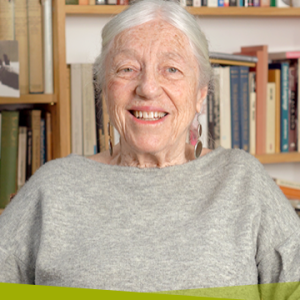
2 days ago
Juliet Mitchell - Feminism: "The Longest Revolution"
All women, with or without privilege, are in some way or other disadvantaged. They are always the Other, no one and oppressed.
About Juliet Mitchell
"I’m a professor emerita of psychoanalysis and gender studies at the University of Cambridge, where I established a Centre for Gender Studies. I'm also Founder Director of the Expanded Doctoral School in Psychoanalytic Studies at the Psychoanalysis Unit of University College London.
I’m not a specialist. I’m what people call a polymath, which means I go across a lot of disciplines. The sorts of subjects I range in are sociology, politics, socialist politics and art. I’m currently working in the field of contemporary art, Louise Bourgeois particularly, and in English literature, which was my first degree."
An unequal life
I started to look at feminism in a systematic way when I first read Simone de Beauvoir. I realised from being a student at Oxford the extraordinary gender disparity that there was between the 1 in 12 students who were women, and the 11 men who were men. All of them back then were dominated by the public-school ethos and hadn’t really seen a woman since they went to boarding school at the age of eight. I wanted to understand a bit about this. Simone de Beauvoir’s book The Second Sex was very much on the agenda of an interest that we all had in French literature.
And so I read Simone de Beauvoir and was horrified. I thought, my God, is it as bad as that here? Is it really as awful as she’s making it out to be? I started work in the late 1950s to look at the situation of women in Britain and I’m afraid I found that it was as bad! It wasn’t only bad in the obvious way of very poor pay. Everyone said it was half pay, but I think, if anything, it was often under half pay because women did much lower jobs and there were huge discriminations. In fact, what had happened was a discrimination that set up a division between women in the family and women in work.
Key Points
• All women, with or without privilege, are in some way or other disadvantaged. They are always the Other, no one and oppressed.
• A study of the family structure and women’s role in it, provided the basis for understanding that everything personal is also political.
• There are many feminisms around the world but they all have one goal: to struggle against the inequities and the oppression of women.
No comments yet. Be the first to say something!